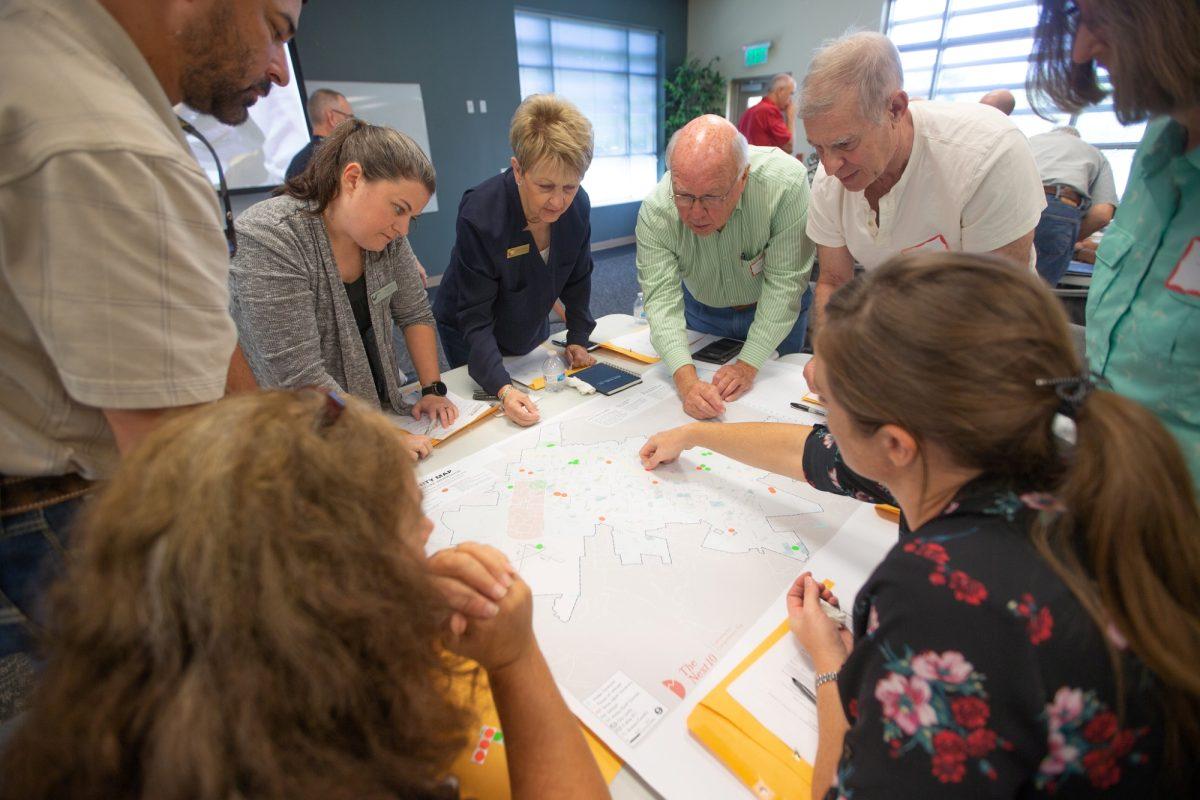“The stakes cannot be overstated.”
Matthew Ellis, a Long Range Planning intern for College Station and Class of 2022, is calling upon the Aggie student body to engage with the city’s “The Next 10” initiative to update College Station’s Comprehensive Plan.
The current revisions include, but aren’t limited to, policies aimed at the growing student population – such as culture and arts expansion, new land use zoning for housing affordability and alternative modes of public transportation. The decade-long policy goals to be set by the plan provides the student body a unique opportunity to shape College Station through 2030.
As the revisions that began in 2019 near their conclusion, a series of public input meetings to engage with city staff in-person will be held this August, including opportunities during Howdy Week and the first week of classes for students to provide feedback.
“Making your voice heard through elections is fine, but this is your chance to guide policy documents,” Ellis said. “To make sure that your opinions are captured in the broadest policy document that even the City Council has to live by.”
Prior public input phases have included outreach to members of the Texas A&M Student Government Association, local educators, family organizations, the development community and religious and historically underrepresented groups.
“The most important way for you to get involved is by reading the plan and providing feedback on the Next 10 webpage,” Ellis said.
Reading the entire 161-page document isn’t necessary to understand city priorities or provide feedback, Ellis said. Bookending each of the plan’s ten chapters are summaries of the chapter’s goals, background and the “strategic actions” the city will take. Additionally, short videos on the Next 10 webpage provide a more accessible overview.
“In between working on stuff for school, maybe you could be reading the comprehensive plan,” Ellis said. “Most of this public engagement is open before school starts, so now is the time.”
Of the 95 strategic actions in the plan, the one that impacts students the most is housing diversification, which will combat gentrification by lowering barriers for new, affordable housing types, the report reads.
“A lot of people don’t know that A&M, while servicing the third-most number of undergraduate students in the United States, holds the lowest number of students in on-campus housing,” Ellis said. “So a lot of the housing pressure that we feel as the city is manufactured by the university not taking what I would call their fair share.”
Two new land use types to encourage affordability –– Mixed-Use Residential and Neighborhood Center. Mixed-Use areas are similar to The Cottages apartment complex, which allows a variety of middle housing types to share the same neighborhoods, Ellis said. Instead of exclusively single-family homes, a mix of duplexes, townhomes and detached houses would share the same streets and community.
“It’s kind of a throwback to what is often called traditional urban planning from the [19]20s, [19]30s and [19]40s,” Halle-Schramm said.
Neighborhood Center zoning would be akin to Northgate’s Urban Center zoning on a smaller scale, with residential, commercial and office uses sharing both horizontal and vertical space. These more walkable communities could alleviate the traffic congestion that has grown with the population, Halle-Schramm said.
“Almost everyone knows College Station as a car town,” Amy Albright, a long range staff planner, said. “Of course, we’re not taking away your car, but we want to create a more complete and connected transportation system with different options where people feel confident taking the bus, a bike or a scooter.”
Among other initiatives, the Brazos Transit District is expanding fixed bus routes. These new transportation and living options are projected to accommodate growth and provide much higher connectivity of the city’s communities.
“Whether you do so by taking the survey, doing the survey maps or showing up in person and making your voice heard; this is the time that you put your advocacy, your passion and your love for College Station into action,” Ellis said.
Final opportunities for public input on the Comprehensive Plan prior to adoption will last until the Oct. 14 City Council meeting for potential adoption. Dates and times can be found on the Next 10 webpage. The Next 10 webpage also features the online survey for public input, which can be taken anonymously.









